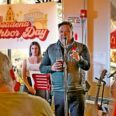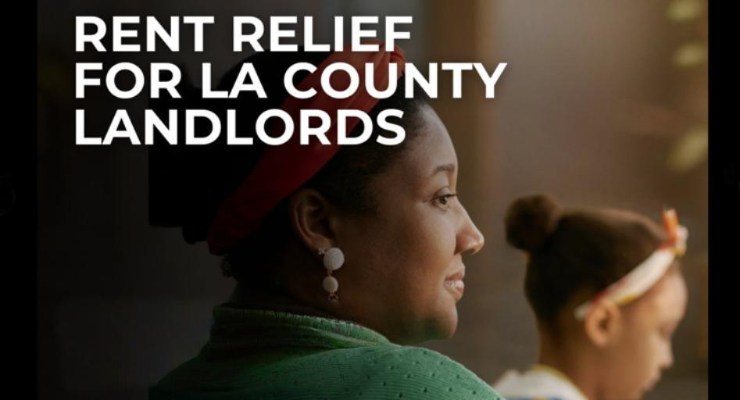
Southern California will fall under sweeping new health restrictions Sunday night due to the rapidly increasing number of hospitalizations from the coronavirus, state officials said Saturday.
A state-mandated “regional stay-at-home” order goes into effect at 11:59 p.m. Sunday, triggered when intensive-care unit bed availability remained below 15% after Saturday’s daily update, according to the California Department of Public Health.
The 11-county Southern California region’s available ICU capacity was 12.5% Saturday, a decrease from 13.1% the day before.
Los Angeles County had 21% of its ICU beds available but that number was expected to decline later when the counties release their daily updates.
The Southern California region consists of Los Angeles, Orange, Riverside, San Diego, Imperial, Inyo, Mono, San Bernardino, San Luis Obispo, Santa Barbara and Ventura counties.
The stay-at-home order will be in place for three weeks and will bar gatherings of people from different households. Under the order, the following businesses and recreational facilities will be forced to close:
-
- indoor and outdoor playgrounds;
- indoor recreational facilities;
- hair salons and barbershops;
- personal care services;
- museums, zoos, and aquariums;
- movie theaters;
- wineries;
- bars, breweries and distilleries;
- family entertainment centers;
- cardrooms and satellite wagering;
- limited services;
- live audience sports; and
- amusement parks.
Schools with waivers will be allowed to remain open, along with “critical infrastructure” and retail stores, which will be limited to 20% of capacity.
Restaurants will be restricted to takeout and delivery service only. Hotels would be allowed to open “for critical infrastructure support only,” while churches would be restricted to outdoor-only services.
Entertainment production — including professional sports — would be allowed to continue without live audiences.
Local officials will be given 24 hours to implement the restrictions in their jurisdictions.
Unlike health orders issued by Los Angeles County, Pasadena would be forced to comply with the state order. The Governor’s Order supersedes the city’s authority and is based on the need for regional and statewide control to address this pandemic.
At Huntington Hospital in Pasadena, staff were treating 26 patients in ICUs on Friday, with 42 total ICU beds available under the hospital’s current configuration, for an ICU capacity level of 38%, Huntington Hospital spokeswoman Dorey Huston said. Eight of the ICU patients were being treated for COVID-19.
But the hospital has a “surge plan” which would allow it to increase the total number of available ICU beds at the facility to more than 100, if needed, she said.
While a Los Angeles County Department of Public Health order already prohibits outdoor dining services in the county, Pasadena, which has its own health department, has opted to allow restaurants to continue serving patrons with social distancing precautions in place.
But the state order, once triggered, would supersede the authority of the Pasadena Public Health Department, city spokeswoman Lisa Derderian explained.
The timing is particularly unfortunate, Derderian said. “It’s a very bad time of year, with the holidays. Not that there’s a good time of year.”
“Closure is imminent based on the state threshold,” she said. ”We hope we can at least get them through the weekend, with proper protocols in place.”
In the meantime, officials were out in force enforcing existing state and city mandates, such as strict social distancing and a 10 p.m. curfew. “We’re not asking you, we’re telling you.”
In addition to restaurants being forced to cease outdoor dining, salons and personal care services are not permitted to operate under the new state order.
Pasadena hotels could also see a significant impact, as the state’s new order bars reservations for non-essential travel, “unless the reservation is for at least the minimum time period required for quarantine and the persons identified in the reservation will quarantine in the hotel or lodging entity until after that time period has expired,” according to the state health order. Non-essential travel is also prohibited.
Retail businesses would be limited to 20% capacity, down from the current limit of 25%.
Other businesses specified as not permitted once the new order takes effect include museums, zoos, movie theaters, wineries, bars, breweries, distilleries, cardrooms and satellite wagering facilities, according to a statement from the office of Gov. Gavin Newsom.
Outdoor recreation facilities, including the Rose Bowl Loop, would be able to remain open under the order, but both indoor and outdoor playgrounds must close, along with indoor recreational facilities.
But city officials have been encountering far too many people using the Rose Bowl loop without masks, Derderian said.
“We need everybody to respect each other and follow the rules,” she said. If problems persist, the city may consider closing it down, along with any other sites attracting non-socially-distanced crowds in the city.
In recent weeks, several restaurants have been temporarily closed by the city for violating health policies. Birthday parties and car meets have been broken up.
“The rules are out there. They’re very simple to follow,” Derderian said. “Don’t take advantage, because you’re ruining it for others.”
Once enacted, the new state restrictions would remain in place “for at least three weeks from the date the order takes effect in a Region and shall continue until CDPH’s four-week projections of the Region’s total available adult ICU bed capacity is greater than or equal to 15%,” the order states.


















